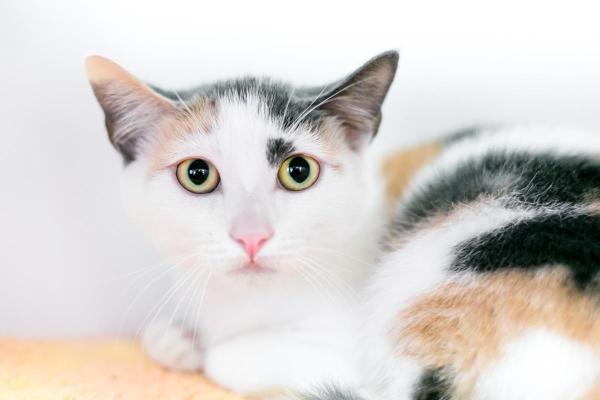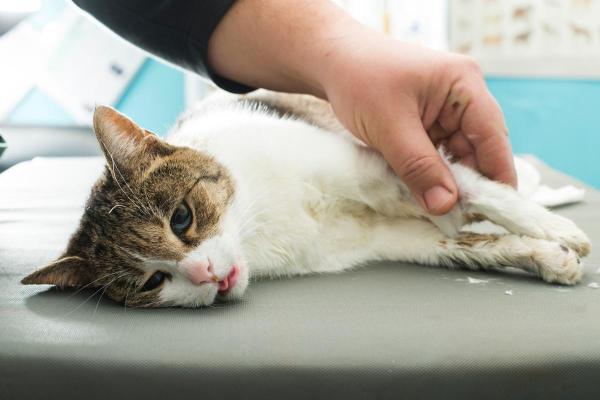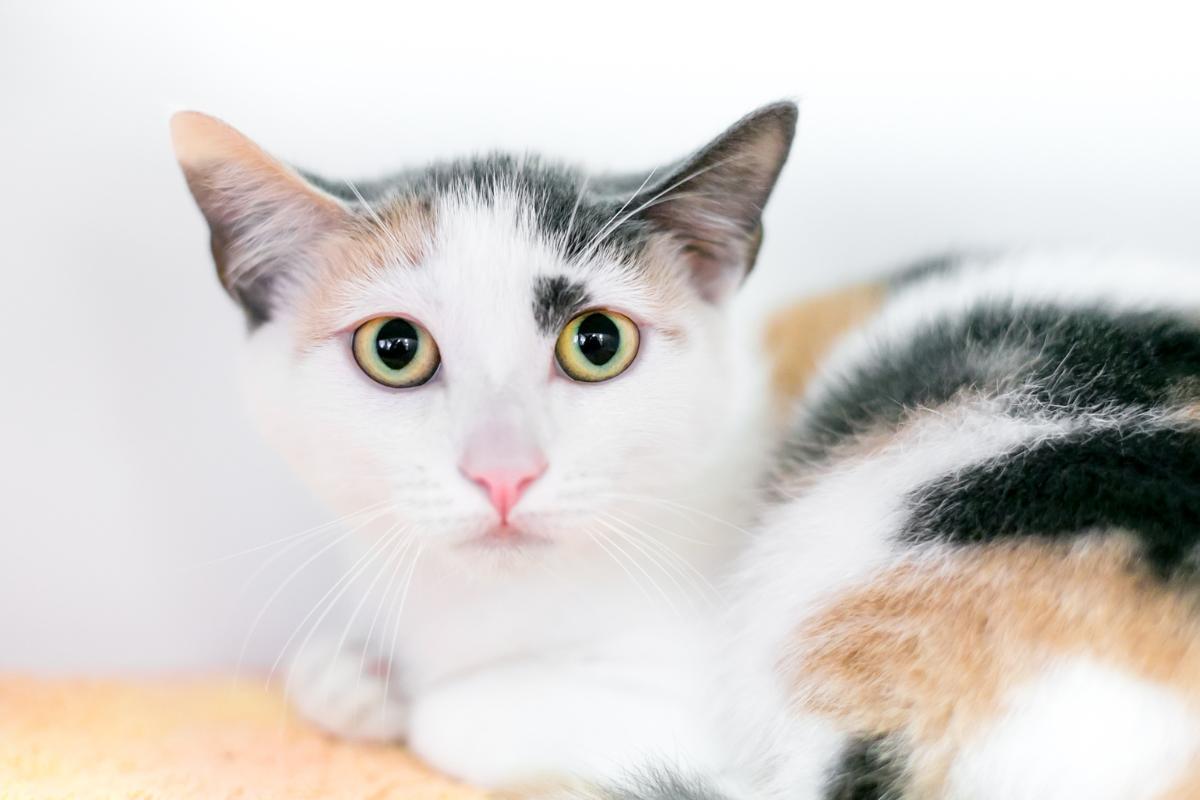Can Cats Die from Seizures?



See files for Cats
Epilepsy, a neurological disorder characterized by recurrent seizures, is not only a concern in humans but can also affect our feline companions. While seizures in cats are relatively rare, they can signal serious underlying health issues. For pet owners, witnessing a cat experience a seizure can be alarming, raising the question: Can seizures be fatal for cats? Understanding the causes, symptoms, and potential risks associated with feline seizures is crucial for ensuring timely and effective care.
This AnimalWised article delves into the dangers of epilepsy in cats, offering insights into how seizures can impact their health and addressing the crucial question: Can Cats Die from Seizures?
Should I be worried if my cat has a seizure?
Epilepsy in cats, like other diseases, can vary in severity depending on several factors, including:
Cause of epilepsy
When a cat experiences seizures, it’s crucial to investigate the underlying cause.
Epilepsy is often secondary to another condition, with common triggers being infectious diseases or, in severe cases, brain tumors, which typically carry a poor prognosis. However, epilepsy may also be idiopathic, meaning no identifiable cause for the excessive neuronal activity and seizures.
Progression
The speed at which the disease develops plays a key role in prognosis. Conditions that progress rapidly often result in worse outcomes. If epilepsy arises suddenly and the frequency or severity of seizures escalates quickly, the situation becomes more critical.
Seizure intensity and duration
Ideally, seizures should be infrequent, mild, and brief (lasting only a few seconds). When these conditions are met, epilepsy can often be managed more effectively with medication. However, as seizures become more frequent, intense, or prolonged, the prognosis worsens.
Response to treatment
If seizures are linked to an underlying condition, addressing that condition can sometimes eliminate the seizures altogether. In some cases, surgical intervention or targeted drug treatments can lead to a full recovery. Unfortunately, if epilepsy is idiopathic or caused by hard-to-treat diseases like neoplasia, the cat may require lifelong medication. The prognosis will depend largely on how well the animal responds to treatment.
Beyond these factors, prompt action by the guardian is vital. Early veterinary intervention greatly improves the chances of controlling epilepsy. Without timely treatment, repeated seizures can cause irreversible brain damage.
Is epilepsy painful for cats?
Yes, epilepsy can be distressing and uncomfortable for cats. While seizures themselves may not cause direct pain, the physical effects during and after an episode can be uncomfortable or even painful. Some common symptoms include:
- Muscle stiffness or spasms: these involuntary movements can cause significant discomfort or even lead to injury.
- Loss of bladder or bowel control: this can be distressing for the cat, causing embarrassment and discomfort.
- Post-ictal confusion: after a seizure, cats may feel disoriented or confused, which can be a frightening experience.
It’s important to remember that each cat's experience with epilepsy varies.
Some may show little to no discomfort, while others might experience more severe symptoms. If your cat shows signs of pain or distress during or after seizures, consult your veterinarian immediately.
Can cats die from epilepsy?
Yes, although deaths from seizures in cats are uncommon, they can be fatal under certain circumstances, especially if they are frequent, severe, or prolonged. A major risk is status epilepticus, where seizures occur in rapid succession without recovery in between. This is a critical condition indicating a total loss of neural control, with dangerous complications such as hypoxia (lack of oxygen), metabolic acidosis, hyperthermia, trauma, and organ failure, which can lead to cardiac arrest and death if untreated.
However, most fatalities are associated with specific underlying causes. Untreated status epilepticus, toxin ingestion that causes metabolic disturbances, and chronically low blood sugar that triggers a ketotic state, where the body burns fat instead of sugar, are more common causes of death related to seizures.
Want to know if your cat’s tongue-out habit is a cause for concern? Check out our deep dive into what might be going on.

What are the after effects of an epileptic seizure?
The aftereffects of an epileptic seizure, also known as the post-ictal period, can vary widely depending on the severity and duration of the seizure. Some cats may experience:
- Muscle soreness or stiffness
- Headaches or migraines
- Difficulty walking or coordinating movements
- Increased thirst or appetite
- Changes in behavior (e.g., aggression, hiding)
The duration and severity of post-ictal symptoms can vary depending on the type and severity of the seizure.
Although epileptic seizures in cats can be alarming to witness, when they are infrequent, well-controlled, and not severe, the cat typically recovers quickly and can return to normal within minutes.
However, there is a risk of injury during a seizure. Cats may hurt themselves on nearby objects or fall if the seizure occurs in a high place. Therefore, if you notice the onset of a seizure, it’s important to clear the area of dangerous objects and, if possible, gently move the cat to a safe, soft surface, such as a carpet, to prevent injury.
In more severe cases, recurrent seizures can have serious long-term effects. Frequent or prolonged seizures may reduce blood flow to the brain, potentially causing permanent brain damage.
Additionally, chronic seizures can increase the risk of heart complications, such as arrhythmias or even heart attacks.
Life expectancy of a cat with epilepsy
The life expectancy of a cat with epilepsy is difficult to predict and largely depends on the underlying cause and severity of the condition.
Common causes of seizures, such as brain tumors, metabolic disorders, or infectious diseases, each have their own prognosis. The outcome will vary depending on how well these conditions respond to treatment. For instance, some brain tumors are inoperable and may grow rapidly, significantly shortening the cat's life expectancy. On the other hand, infections or metabolic issues are often more treatable, which can lead to a better prognosis.
In cases of idiopathic epilepsy —where no underlying cause is identified—lifelong medication is typically required. If the cat responds well to treatment, the frequency and intensity of seizures can be greatly reduced, improving both the quality of life and life expectancy. With proper management, many cats with epilepsy can live long and healthy lives.
How to help a cat with epilepsy?
If your cat has been diagnosed with epilepsy, you can take several steps to help them manage the condition and improve their quality of life. Here are some key tips, incorporating both practical advice and strategies for long-term care:
- Your vet is your primary resource for managing your cat’s epilepsy. They can provide a diagnosis, recommend appropriate treatments, and adjust the care plan as needed. Regular check-ups are crucial for monitoring the cat’s progress and responding to any changes in their condition.
- Administer your cat’s medication on time and exactly as prescribed. Missing doses can increase the risk of seizures. If you're struggling to give your cat its medicine, talk to your vet for tips or possible alternatives.
- Remove any potential hazards that could cause injury during a seizure. Sharp objects, open containers, or high places where a cat might fall during an episode should be addressed. Providing soft surfaces, like carpets or cushions, can prevent injury if a seizure occurs.
- Keep a detailed log of seizure frequency, duration, and intensity, and if possible, video the episodes. This information is invaluable for your veterinarian in assessing how well the treatment is working and making adjustments if necessary.
- When your cat has a seizure, reduce stress by staying calm and keeping the environment quiet. Turn off loud noises, dim the lights, and stay nearby to ensure the cat’s safety without interfering.
- A proper diet can support overall health and possibly reduce seizure triggers. Consult your vet about whether changes such as avoiding high-fat or high-protein foods might help your cat’s condition. Providing hydration with wet food and fresh water is also essential.
- Epileptic cats still need mental and physical stimulation. Allow them to engage in natural behaviors such as play, scratching, and climbing, while adjusting activities to their health. Make sure to spend quality time with your cat to help reduce loneliness and stress.
- If you spend time away from home, consider installing video surveillance cameras to monitor your cat. Capturing seizures on video provides your veterinarian with valuable information and ensures that your cat’s condition is always being tracked.
With proper care, medication, and a supportive environment, many cats with epilepsy can live long, happy lives.
Is your elderly cat experiencing tremors? Learn what might be causing these shakes and how to manage them in our related piece.
This article is purely informative. AnimalWised does not have the authority to prescribe any veterinary treatment or create a diagnosis. We invite you to take your pet to the veterinarian if they are suffering from any condition or pain.
If you want to read similar articles to Can Cats Die from Seizures?, we recommend you visit our Neurological diseases category.






